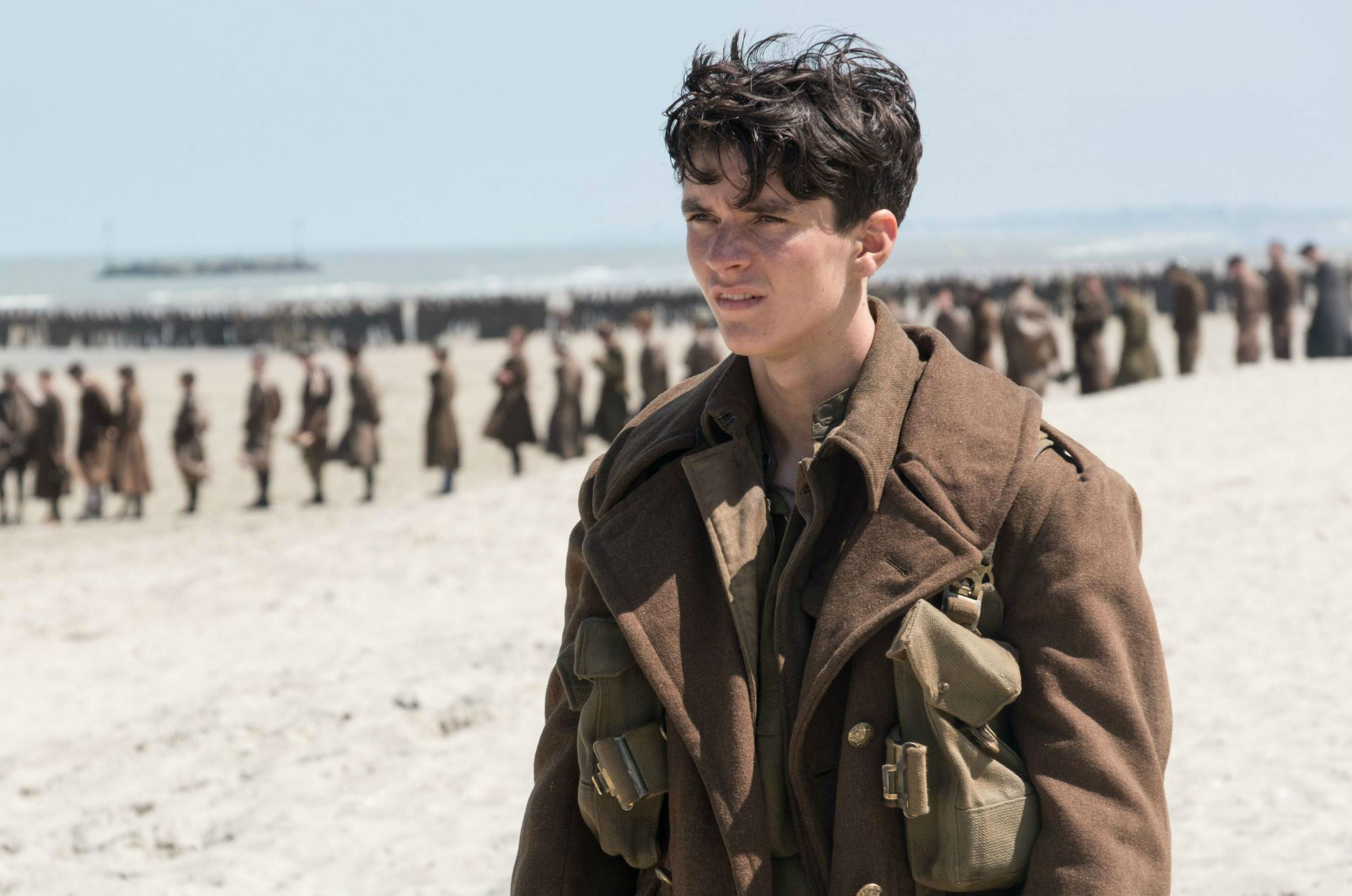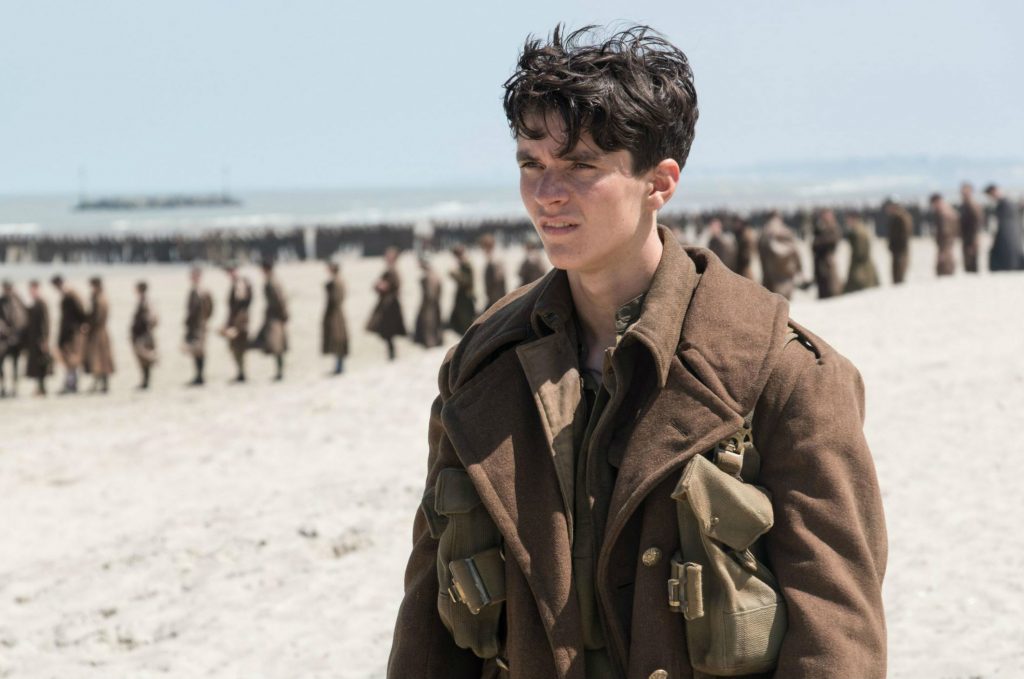 One of the biggest blockbuster movies of summer 2017 looks likely to be “Dunkirk,” a WWII drama set on the beaches of northern France in summer 1940 as Adolf Hitler’s panzer armies closed in on pockets of trapped and surrounded allied forces. The film will introduce global audiences to one of the most celebrated events in modern British history—the successful evacuation of over 300,000 soldiers by a makeshift armada of merchant shipping and pleasure boats manned by civilian volunteers who braved the Luftwaffe to cross the English Channel and bring the stranded troops home.
One of the biggest blockbuster movies of summer 2017 looks likely to be “Dunkirk,” a WWII drama set on the beaches of northern France in summer 1940 as Adolf Hitler’s panzer armies closed in on pockets of trapped and surrounded allied forces. The film will introduce global audiences to one of the most celebrated events in modern British history—the successful evacuation of over 300,000 soldiers by a makeshift armada of merchant shipping and pleasure boats manned by civilian volunteers who braved the Luftwaffe to cross the English Channel and bring the stranded troops home.
British audiences are well aware of the legend surrounding Dunkirk—it has been part of the national fabric for the past seventy-seven years and remains a huge source of patriotic pride. Even today, “The Spirit of Dunkirk” remains a byword for British bravery and resourcefulness that serves as a rallying cry for any situation when all hope seems lost.
The mythologizing around Dunkirk has helped to cloud out the somewhat uncomfortable reality that it was actually a desperate retreat in the wake of an unparalleled military disaster. The Dunkirk evacuation was the last act in the collapse of allied resistance to the Nazi onslaught in Western Europe. It ranks among the most comprehensive defeats in the annals of British military history, yet it is remembered as one of the country’s finest hours.
This is not merely the result of wartime propaganda. Dunkirk continues to stir emotions because it celebrates the everyday Britons who rose to the challenge at a time of unprecedented national peril, sailing into the jaws of the Nazi war machine knowing that many would not return. It was a victory of ordinary people thrust into extraordinary circumstances, and it has occupied a central place in English folklore ever since.
As Ukraine seeks to consolidate its post-Maidan national identity, it could learn much from the British reverence for Dunkirk. The events of 2014 in Ukraine share much of Dunkirk’s everyman volunteer drama, and could have a similarly galvanizing effect on Ukrainian national spirit if placed in their proper historical context.
In the spring of 2014, Ukraine faced seemingly overwhelming odds as Russia’s surprise offensive claimed Crimea and then spread east. There was an air of dreadful inevitability as town after town fell to Russian hybrid forces and their local collaborators. Ukraine’s threadbare military was hopelessly outmatched and unable to defend the country. By mid-April, many in Kyiv were preparing for the imminent arrival of Putin’s “little green men” in the Ukrainian capital itself.
Then something incredible happened—ordinary Ukrainians took up arms and fought back. The volunteer battalions who brought the Russian advance to a halt were among the most ragtag formations in modern military history. Armed with whatever came to hand and often outfitted in mismatched uniforms, these largely untrained citizen soldiers were in the vanguard as Ukraine liberated town after town in late spring and early summer 2014. Behind them stood an entire nation of volunteers working to feed, fund, and outfit Ukraine’s improvised army.
Together, they did enough to contain the Kremlin insurgency and convince Moscow that further escalation would prove prohibitively costly in both blood and treasure. This military miracle was completely unexpected. It would not have looked out of place in the most far-fetched of Hollywood blockbusters, and it saved Ukraine from impending extinction.
Much like Dunkirk, Ukraine’s military miracle of 2014 was not a glorious victory. It did not end the war. Crimea and the eastern Donbas remain occupied, while Ukrainians continue to die on an almost daily basis. Nevertheless, the volunteer spirit of those fateful months has all the elements of a national epic.
This narrative has the potential to unite Ukrainians of all political persuasions by emphasizing the diverse nature of the forces that came to the country’s rescue in its hour of need. As the volunteer battalions took shape, nobody asked whether someone was a Russian-speaker or a Ukrainian-speaker. Former Berkut riot police officers and Maidan protesters stood shoulder to shoulder. Jews, Muslims, Catholics, Orthodox, and atheists marched together, suddenly indifferent to petty peacetime squabbles. In extremis, they found that they were all Ukrainians.
Ukraine has not forgotten the volunteer spirit of 2014, but it has not yet done justice to the scale of their achievement. This is partly due to political expediency. There is considerable discomfort among the country’s political leadership over the glorification of paramilitary formations that they struggle to control, alongside reluctance to champion successes they cannot claim.
Others may argue that with the conflict still ongoing, it is simply too soon to celebrate the inconclusive military reprieve of 2014. However, the current low-level fighting in eastern Ukraine may continue for many years to come. Ukraine cannot wait forever before moving forward.
In the absence of a Dunkirk-style Hollywood movie of their own, Ukrainians should focus on telling the stories of the everyday folk who joined the volunteer wave of 2014, including everyone from frontline fighters to online fundraisers. The names of these assorted bank managers, computer programmers, Afghan war veterans, students, and trainee medics should become household words. Most of all, the selfless volunteer ethos of 2014 should be recognized as the epitome of the Ukrainian national spirit.
Focusing on these modern-day heroes makes a lot more sense than glorifying the most controversial figures from Ukraine’s troubled twentieth century experience. The twenty-first century volunteer movement is not without its own controversies, but it has infinitely greater potential to unite the nation and engage global audiences.
All countries need their fair share of national legends, but the fact remains that Ukraine has spent much of the past twenty-five years arguing bitterly about the past. The time to rethink Ukraine’s historical narrative will surely come, but the current overriding priority is national consolidation. This requires themes with the potential to appeal to the majority of the population. The events of 2014 are tailor-made for this task. Like Dunkirk, it is a tale of breathtaking bravery with a cast of unlikely heroes drawn from every walk of life. The story of Ukraine’s volunteer army transcends politics, religion, ethnicity, and ancestry. It is the story of a nation coming of age, and it has the potential to inspire Ukrainians for generations to come.
Peter Dickinson is a nonresident fellow at the Atlantic Council and publisher of Business Ukraine and Lviv Today magazines. He tweets @Biz_Ukraine_Mag. A version of this article was originially published in Russian by Novoe Vremya on June 9.
Image: Dunkirk, a WW II film, debuts in US theaters on July 21, 2017. Credit: Courtesy Screenshot Warner Bros. Pictures
